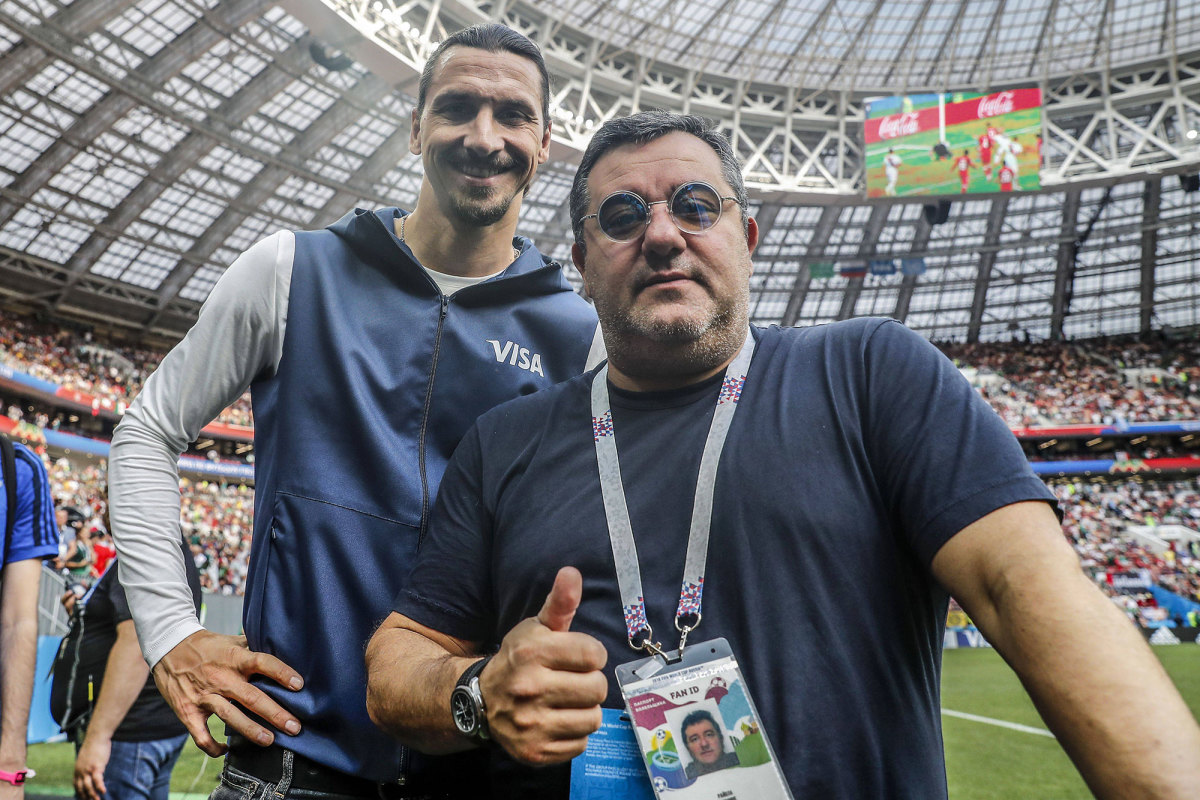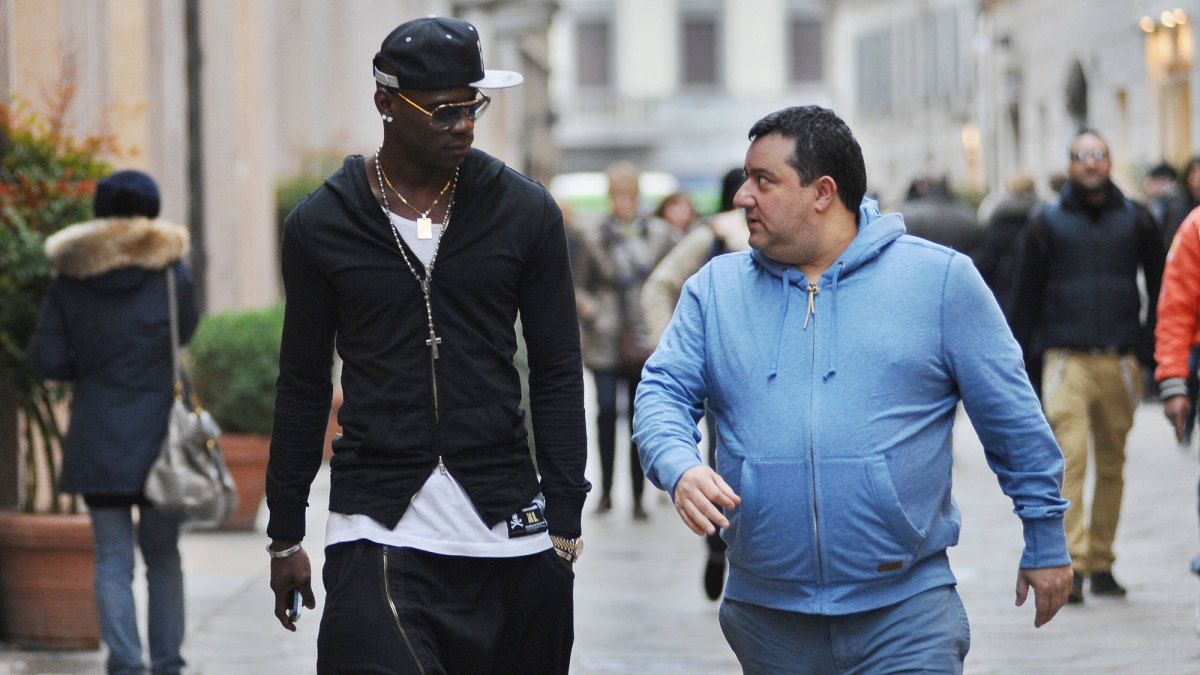Mino Raiola Was an Unorthodox, Transformative Force, Adored by His Players

Mino Raiola’s first job was in his father’s pizza restaurant in the Dutch city of Haarlem. They had emigrated from southern Italy to the Netherlands when he was 11, and for years he slaved away, washing the floor and waiting tables. As he got older, his father realized he had an aptitude for business and his son was put in charge of the books and negotiating contracts to import the best mozzarella and tomatoes. The offices of the Dutch football federation were nearby and an Italian agent used to pop in.
That was first contact Raiola, who died on Saturday at the age of 54, had with football, a world he would transform. For many, he symbolized much that was wrong with the modern game. He was somebody who knew the cost of everything and value of nothing, who spun players from club to club to improve their wages while taking a huge cut for himself without taking much time to think about what was good for football. The obsession his clients, notably Paul Pogba and Zlatan Ibrahimović, seemed to have with the Ballon d’Or spoke of a focus on individualism that cut against the collective spirit on which the most successful teams and the games itself are based.
The alternative view is that Raiola fought ferociously for his clients, bringing market values to bear on a world that was often bound up in the ancient rituals of a complacent establishment. In the Netherlands, for instance, transfer fees were once set by a calculation based on a player’s age and a set of statistics; Raiola ripped all that up. The first deal he did was to take Bryan Roy from Ajax to Foggia, having promised the Italian club that by cutting back on intermediaries’ fees, he could broker the deal for around half what it would be with another agent.

Raiola was unorthodox and assertive (he even tweeted in disgust amid premature reports of his death). He dressed with a willful sloppiness, as exemplified by Ibrahimović’s famous description of their first meeting in his autobiography. “I really didn’t know what sort of a person to expect,” he wrote. “Probably some sort of pinstriped fella with an even bigger gold watch [than me]. But who the hell turned up? A bloke in jeans and a Nike T-shirt — and that belly, like one of the guys in the Sopranos.” That was one of the reason such a range of players liked him. He wasn’t one of the suits, and he wasn’t part of the establishment. He was on their side.
When Ibrahimović first approached Raiola, through the Brazilian fullback Maxwell, Raiola told him to “go f––– himself.” Ibrahimović immediately respected him. This was the language he spoke. When Raiola then told him to cut back on the bling and work harder, Ibrahimović saw the sense of what he was saying.
Raiola’s power was seen as he negotiated the transfer that took Matthijs De Ligt from Ajax to Juventus in 2019 and Italian fans seeing him in Turin chanted his name. Raiola, everybody knew, was somebody who could get deals done. Even in the days leading up to his death, he was working on the possible transfer of Erling Haaland to Manchester City—and that despite the major falling out he had with Pep Guardiola during Ibrahimović’s time at Barcelona.
A previous client of his at Man City, Mario Balotelli, once called Raiola after he had set his house on fire by letting off fireworks in the bathroom. When a player was in trouble, his first instinct was to call Raiola. The agent told him to call the fire brigade.

That anecdote perhaps suggests why agents are necessary. A lot of players, siphoned out of “normal” life from an early age, are extremely unworldly. Balotelli, in his farewell tribute to Raiola on social media, called him a “second father.” The idea that these players could negotiate contracts with the lawyers employed by major clubs is laughable. And that perhaps brings us closer to the truth.
Raiola was a figure who made many feel uncomfortable, a personification of the greed of the modern game. Football, it’s probably fair to suggest, would be a happier game if people like him weren’t part of its ecosystem. But he was a symptom rather than a cause. He fought ferociously for his clients, most of whom needed fighting for. If clubs were less rapacious, the world less driven by profit, there would have been no need for Raiola and agents like him. In that sense, he was simply somebody who avoided the common hypocrisies, who took on the clubs and the institutions and gave power to the players who are, after all, the people football is about. And he became extremely rich while doing so.
More Soccer Coverage:
